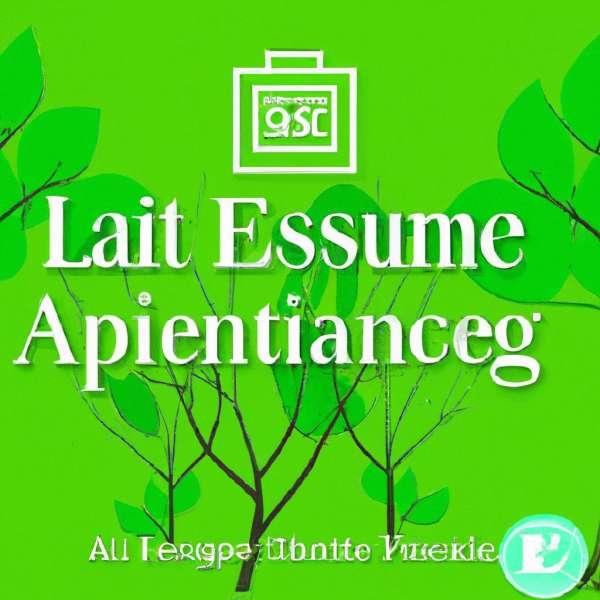In the intricate tapestry of financial planning, where threads of income security, wealth preservation, and legacy building intertwine, annuities emerge as a unique motif deserving of attention. While often associated with retirement income, annuities can also play a pivotal role in estate planning, offering a structured approach to preserving and distributing wealth across generations. This article delves into the lesser-explored domain of using annuities as strategic tools in estate planning, examining how they can provide not only financial stability but also peace of mind for you and your loved ones. Join us as we unravel the potential of these financial instruments and explore how they can be woven effectively into your broader estate strategy.
Navigating the Landscape of Annuities in Estate Planning
When integrating annuities into estate planning, it’s essential to understand the varied roles they can play. Annuities can serve as a financial safety net, offering a method for securing a steady income stream during retirement, while also providing a means to transfer wealth smoothly to beneficiaries. However, navigating the complexities of these financial instruments requires careful consideration of their advantages and limitations.
One of the primary benefits of annuities in estate planning is their potential to bypass the probate process. Since many annuities allow for the direct naming of beneficiaries, the funds can be disbursed quickly and efficiently upon the policyholder’s passing. This feature can be particularly beneficial when addressing the financial needs of dependents or fulfilling specific bequests. Here are some pivotal points to consider:
- Immediate Access: Beneficiaries receive funds without the delays associated with probate.
- Control Over Timing: Annuities can be structured to pay out over time, aligning with the needs of beneficiaries.
- Tax Implications: Some annuities can provide tax-deferred growth, maximizing the value passed on to heirs.
Moreover, understanding the types of annuities available can enhance their effectiveness in estate planning. Various options exist, each catering to distinct financial goals:
| Type of Annuity | Key Feature |
|---|---|
| Immediate Annuity | Starts payments right after a lump-sum investment. |
| Deferred Annuity | Payments begin at a later date, allowing for growth. |
| Fixed Annuity | Offers a guaranteed payout amount. |
| Variable Annuity | Payments vary based on investment performance. |
By thoughtfully selecting the right type of annuity and tailoring it to fit personal financial strategies and family needs, individuals can cultivate a robust estate plan that honors their legacy while providing peace of mind. Employing the versatility of annuities can ultimately facilitate both durability and accessibility in the financial lives of one’s heirs.

Exploring the Benefits of Annuities for Wealth Transfer
When considering the long-term strategy for passing on wealth, annuities present a unique avenue worth exploring. These financial products not only provide a steady stream of income but can also be strategically used to ensure that beneficiaries receive financial support in a structured manner. Some key advantages include:
- Guaranteed Income: Annuities can be tailored to offer payments over a predetermined period or even for the lifetime of the beneficiary, ensuring financial stability.
- Tax Advantages: The interest earned on an annuity is tax-deferred, meaning it won’t be taxed until the money is withdrawn, allowing for more substantial growth.
- Control Over Payouts: Policyholders can customize how and when their beneficiaries receive funds, which can help mitigate issues such as irresponsible spending.
Another noteworthy feature of annuities in estate planning is their potential to bypass the probate process. Unlike traditional inheritances, which can be delayed by legal proceedings, annuities can transfer directly to named beneficiaries upon the death of the policyholder, ensuring prompt support when needed. The simplicity of this transfer can be vital in times of emotional and financial turmoil.
| Benefit | Description |
|---|---|
| Flexibility | Customizable payment structures to fit client needs. |
| Protection | Often protected from creditors, securing the legacy. |
| Legacy Options | Ability to designate beneficiaries directly. |
Ultimately, the integration of annuities into estate planning can serve as a robust mechanism for ensuring that wealth transitions smoothly and effectively from one generation to the next. By considering the structured approach that annuities provide, individuals can create a lasting financial legacy that not only supports their loved ones but also aligns with their overall financial goals.

Strategizing for Tax Efficiency with Annuities
When considering annuities as a tool for estate planning, it is essential to grasp how they can enhance tax efficiency. Annuities provide a unique opportunity to potentially grow assets without immediate tax implications, allowing wealth to accumulate until withdrawal. This delayed taxation can be particularly advantageous when planning for future generations. By strategically integrating annuities into an estate plan, individuals can effectively manage their taxable estate and create a legacy that benefits heirs while minimizing tax burdens.
Key Benefits of Using Annuities in Estate Planning:
- Tax-Deferred Growth: Earnings on annuities grow tax-deferred, meaning you won’t pay taxes on interest, dividends, or capital gains until withdrawals begin.
- Beneficiary Designation: Annuities allow for direct beneficiary designations, bypassing probate and ensuring a smoother transition of assets to heirs.
- Flexible Income Streams: With options for systematic withdrawals or a lump sum, annuities can provide flexible income while potentially reducing taxable income in higher-earning years.
- Potential for Charitable Giving: Certain annuities can be structured to fund charitable gifts, providing additional tax benefits while fulfilling philanthropic desires.
| Type of Annuity | Tax Treatment | Estate Planning Benefit |
|---|---|---|
| Fixed Annuity | Tax-deferred until withdrawal | Stable income with predictable growth |
| Variable Annuity | Tax-deferred, investment growth | Potential for higher returns, flexibility |
| Immediate Annuity | Income taxed upon receipt | Beneficial for immediate cash flow needs |
When evaluating annuities’ role in estate planning, it is crucial to consider the different types available, as each offers distinct tax advantages and estate planning opportunities. Consulting a financial advisor or tax professional can provide deeper insights into how annuities can fit uniquely within one’s total financial picture, ensuring that estate goals align with sound tax strategies. The ultimate aim is to build a strategy that protects assets and enhances the financial security of future generations while adhering to regulatory frameworks.

Creating a Comprehensive Estate Plan with Annuities Integration
When integrating annuities into your estate planning strategy, it’s essential to understand how they can enhance your overall financial security and provide for your beneficiaries. Annuities can be a powerful tool, offering a structured way to convert a lump sum into a steady income stream, which can be particularly beneficial during retirement. This can provide peace of mind as you ensure that your loved ones have a financial cushion even after your passing.
Key Aspects of Annuities in Estate Planning:
- Protection from Creditors: Many states provide protection for annuities from creditors, which can be a vital consideration in preserving your estate’s value for your heirs.
- Tax Benefits: Annuities grow tax-deferred, meaning the beneficiaries won’t incur taxes until they begin receiving payouts, potentially reducing their tax burden.
- Guaranteed Income: By incorporating annuities, you can create a guaranteed income stream that supports your family or other beneficiaries during their time of need.
To create a comprehensive estate plan, consider the following steps:
| Step | Description |
|---|---|
| Evaluate Your Needs | Assess your financial situation to determine the appropriate type of annuity. |
| Choose the Right Annuity | Decide between fixed, variable, or indexed annuities based on your risk tolerance and goals. |
| Designate Beneficiaries | Clearly designate beneficiaries to avoid delays in payouts. |
| Review Regularly | Monitor your annuities and estate plan regularly to adapt to changing financial situations. |
By thoughtfully incorporating annuities into your estate plan, you not only enhance your financial legacy but also ensure that your family members receive the support they need, creating a lasting impact on their lives. This integrated approach to financial and estate planning can provide both security and peace of mind for you and your loved ones.
Final Thoughts
incorporating annuities into your estate planning strategy can offer a unique blend of financial security and peace of mind for both you and your heirs. By understanding the various types of annuities available and how they align with your overall goals, you can create a customized plan that not only preserves your wealth but also ensures a lasting legacy. The potential to provide steady income streams while mitigating tax implications adds another layer of sophistication to your estate plan. As you embark on this journey, remember that engaging a financial advisor can illuminate the path forward, helping you navigate the complexities of annuities with confidence. Estate planning is an ongoing process, and with thoughtful consideration, you can pave the way for a future where your intentions are honored and your loved ones are protected. Embrace this opportunity to plan ahead, and watch as your careful preparations lead to a fulfilling journey for generations to come.


